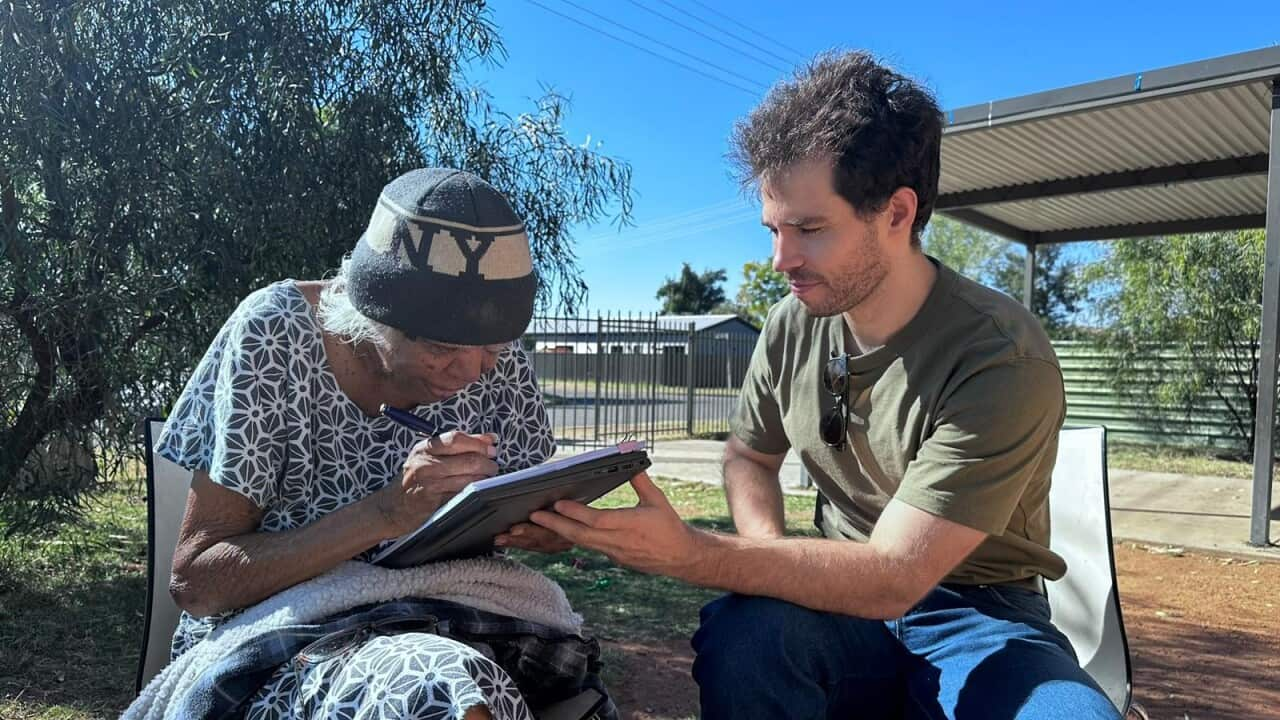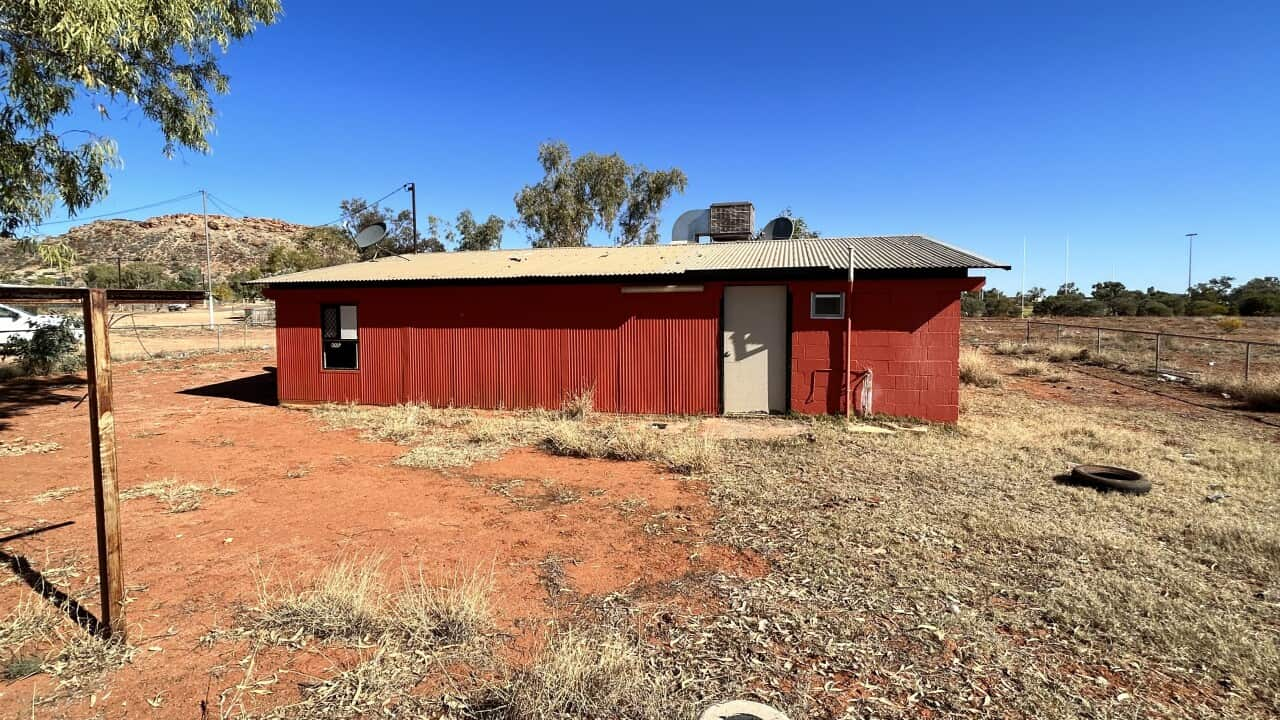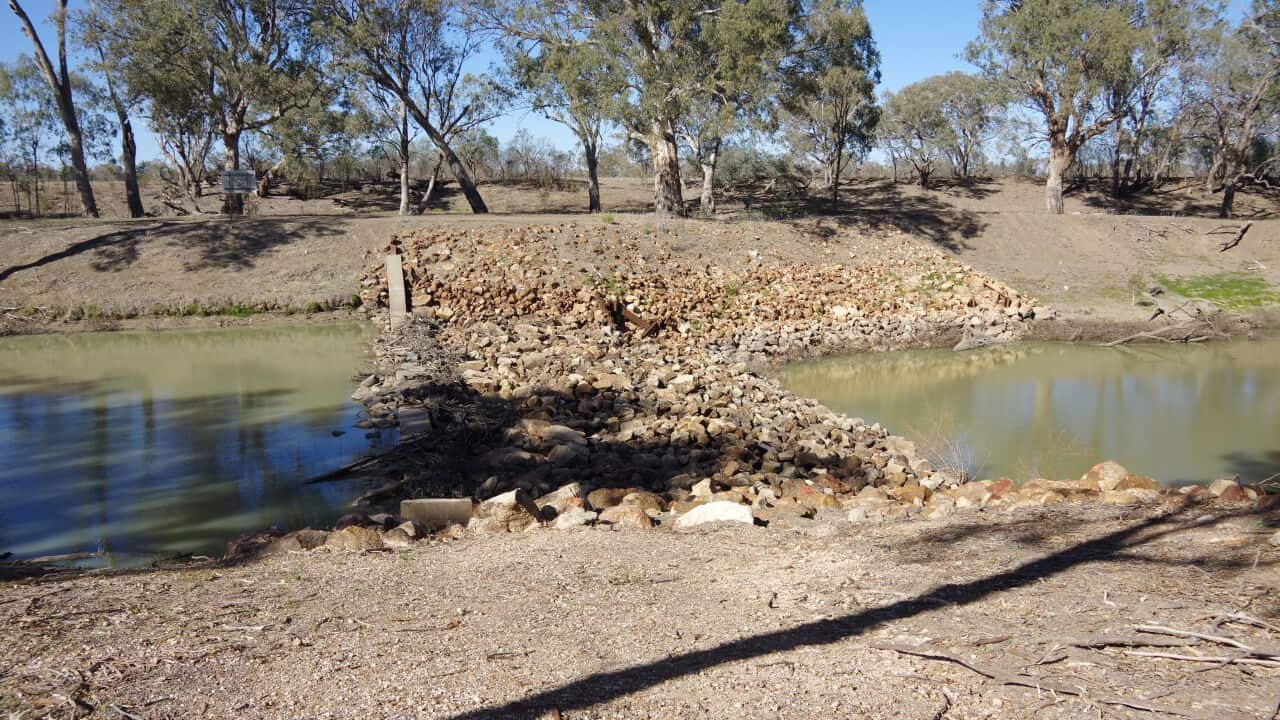For many years Aboriginal people living in the remote Northern Territory community of Laramba unknowingly drank water containing high levels of uranium.
In an important victory for renters and remote Indigenous communities, the NT Supreme Court ruled in October last year that the public housing landlord, the Territory's Housing Department, is legally required to supply safe drinking water to its tenants.
But the NT Government is appealing that decision.
In 2018 residents of Laramba, west of Alice Springs, took the Department of Housing to the NT Civil and Administrative Tribunal (NTCAT) over concerns about their drinking water, which contained uranium at levels three times the maximum safe level set out in the Australian Drinking Water Guidelines.
The NTCAT found the landlord was not responsible for providing safe drinking water to its tenants.
READ MORE

Traditional Owners in NT water fight
That decision was overturned by the NT Supreme Court, which opened a potential avenue for the estimated 250,000 Aboriginal people who are currently unable to reliably access safe and healthy water in the Territory to seek legal redress and compensation.
After the community launched legal action, the NT Government responded by constructing a new water treatment plant for Laramba which opened in April 2023.
While this resolved the issue for Laramba, it did not address the issue of who was legally responsible for ensuring a safe supply of drinking water, nor who will compensate tenants for the health risks that came with uranium-enriched drinking water, particularly to the kidneys of long-term residents.
The residents bringing the case were represented pro bono by Australian Lawyers for Remote Aboriginal Rights (ALRAR) and barrister Matthew Albert.
Grata Fund provided funding and support to the community throughout the legal journey.
Solicitor with Australian Lawyers for Remote Aboriginal Rights Dan Kelly told NITV that the NT Government isn't subject to any direct legal obligation to provide safe and clean drinking water and is fighting the Supreme Court decision on the basis that it's also not a landlord's obligation.
"But ultimately, the Northern Territory Government has a basic moral duty, we say, to ensure people have safe drinking water," he said.
"In the case of Laramba, about four or five years after we started proceedings, they did take action to fix up that community's drinking water but there are many other communities where no action has been taken and there doesn't seem to be any serious effort to fix things.
"So I think in those circumstances, all you can deduce is that the government is not doing much to try and help people in this situation, and seems to be trying to avoid any legal obligation to do so."
In 2016, public housing tenants of the remote community of Ltyentye Apurte (Santa Teresa), 85 kilometres south-east of Alice Springs, took their landlord, the NT Government, to court for not providing habitable homes.
The NT Government fought the case all the way to the High Court, which ruled last year in the tenants' favour and that, as the landlord, the Housing Department had to pay compensation for substandard living conditions.
"One of the outcomes of that case was ... the requirement for landlords to ensure premises are habitable, and what habitable means is that you provide a reasonably comfortable place to live, and that that premises is free from risks to health and safety," Mr Kelly, who also worked on the Santa Teresa case, said.
"So that directly feeds into the Laramba case, because we are saying that uranium in your drinking water is a risk to health and safety, and therefore a breach of the habitability obligation ...
"The Northern Territory Government ... fight at every stage and we expect them to continue to do so, but eventually, we do hope to hold government to account and try and force them into better standards for people in remote communities."
In some remote communities where the water isn't safe to drink, councils provide bottled water.
"We think they [the NT Government] need to step in and make sure that everybody in the Territory has access to clean water immediately and have a long term plan to make sure that what's coming out of people's taps is not dangerous," Mr Kelly said.
Last week Laramba community leader Adrian Dixon told the National Indigenous Times that for a long time families in Laramba had unknowingly drunk unsafe water with uranium in it.
"When we found out we were worried that it made us sick," he said.
"The NT Government would not fix it, so we had to take them to court, instead of fixing the problem, they fought us in court every step of the way.
"Last year, we won the court case, and the court said it was their responsibility.
"They are still arguing, and going back to court again to say it is not their responsibility.
"A few years after we took them to court, the government did come and install a water filter for Laramba.
"That is good, but it doesn't solve the problem for other communities who also have unsafe water."
A spokesperson for NT Housing Minister Steve Edgington said they were unable to comment due to the legal action.
















